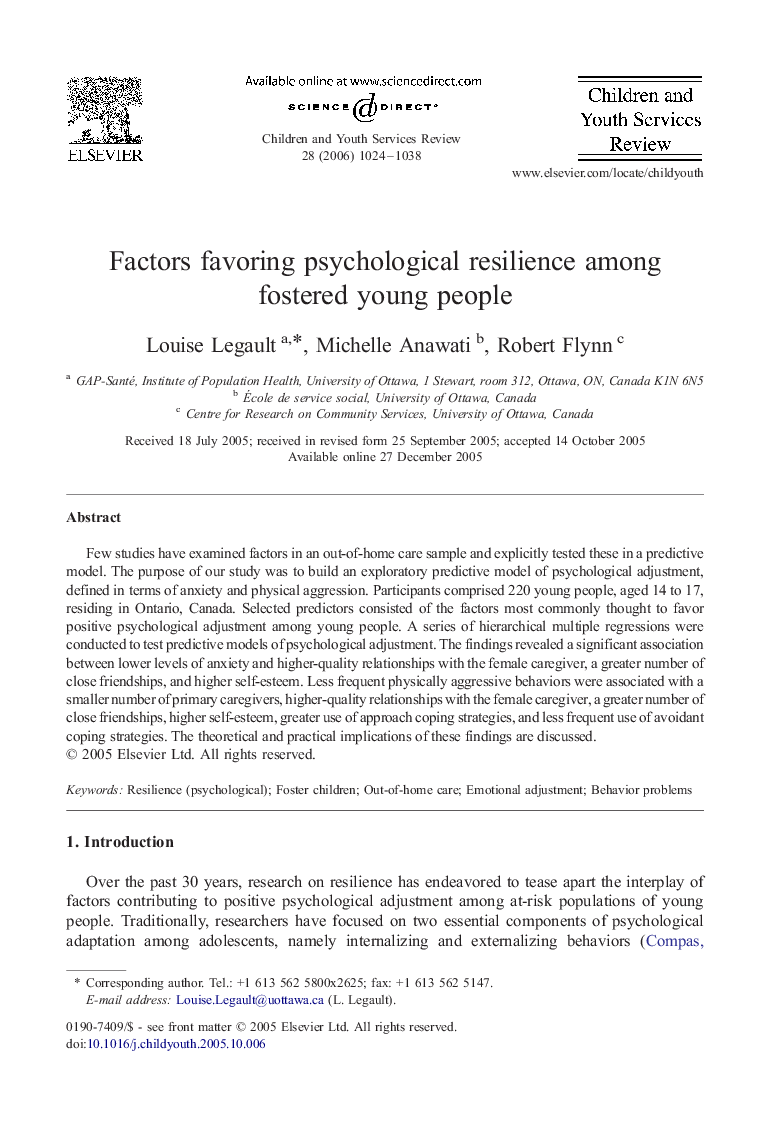| Article ID | Journal | Published Year | Pages | File Type |
|---|---|---|---|---|
| 347298 | Children and Youth Services Review | 2006 | 15 Pages |
Few studies have examined factors in an out-of-home care sample and explicitly tested these in a predictive model. The purpose of our study was to build an exploratory predictive model of psychological adjustment, defined in terms of anxiety and physical aggression. Participants comprised 220 young people, aged 14 to 17, residing in Ontario, Canada. Selected predictors consisted of the factors most commonly thought to favor positive psychological adjustment among young people. A series of hierarchical multiple regressions were conducted to test predictive models of psychological adjustment. The findings revealed a significant association between lower levels of anxiety and higher-quality relationships with the female caregiver, a greater number of close friendships, and higher self-esteem. Less frequent physically aggressive behaviors were associated with a smaller number of primary caregivers, higher-quality relationships with the female caregiver, a greater number of close friendships, higher self-esteem, greater use of approach coping strategies, and less frequent use of avoidant coping strategies. The theoretical and practical implications of these findings are discussed.
